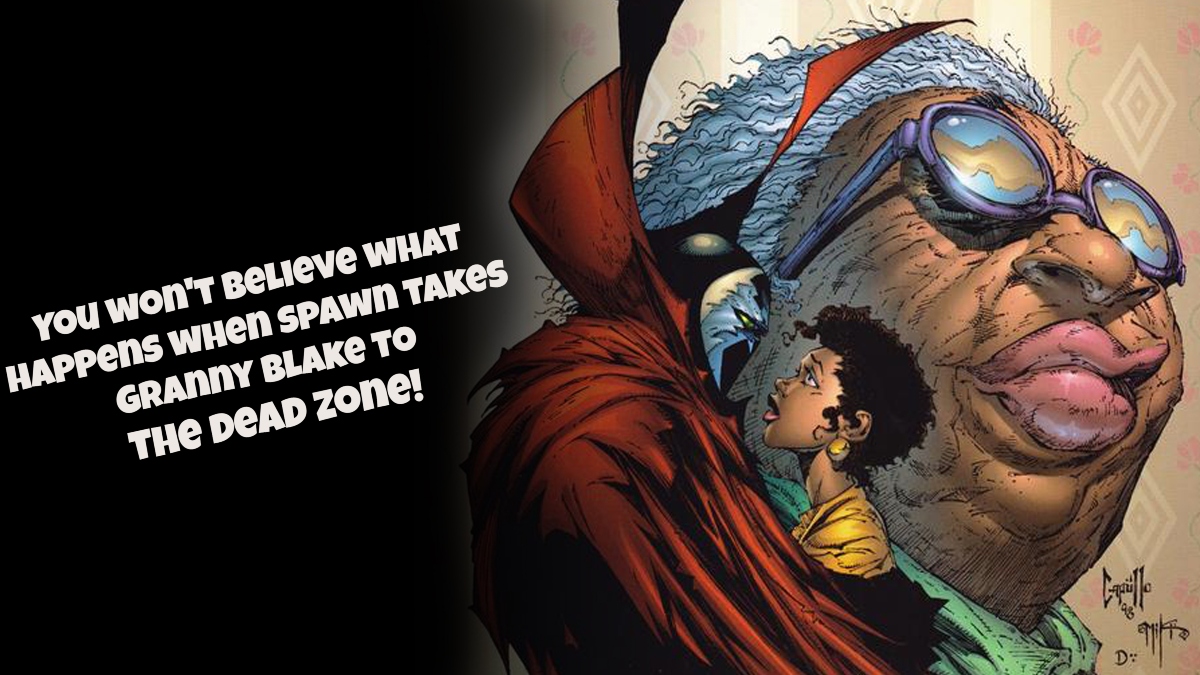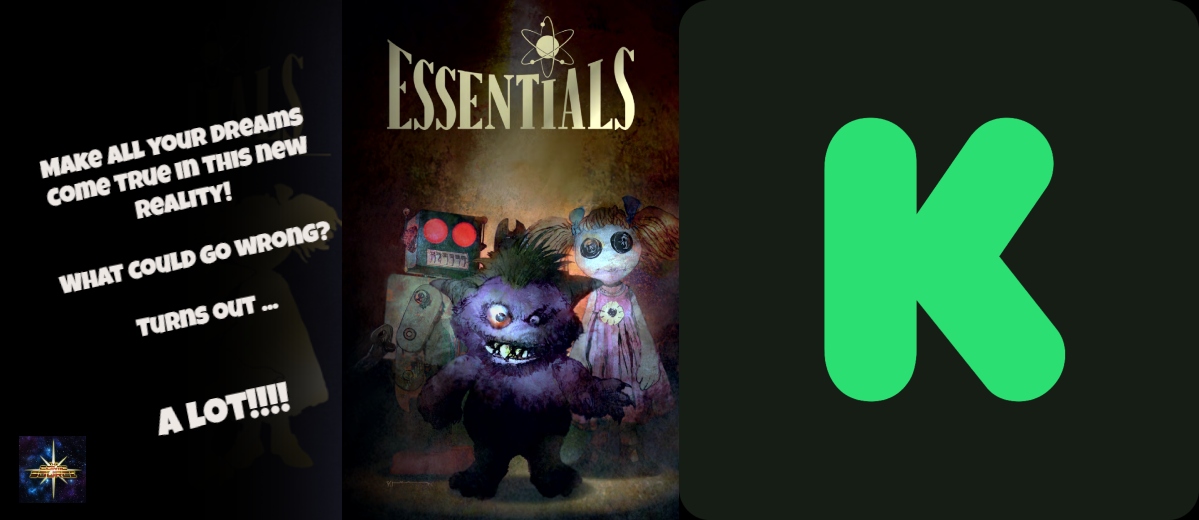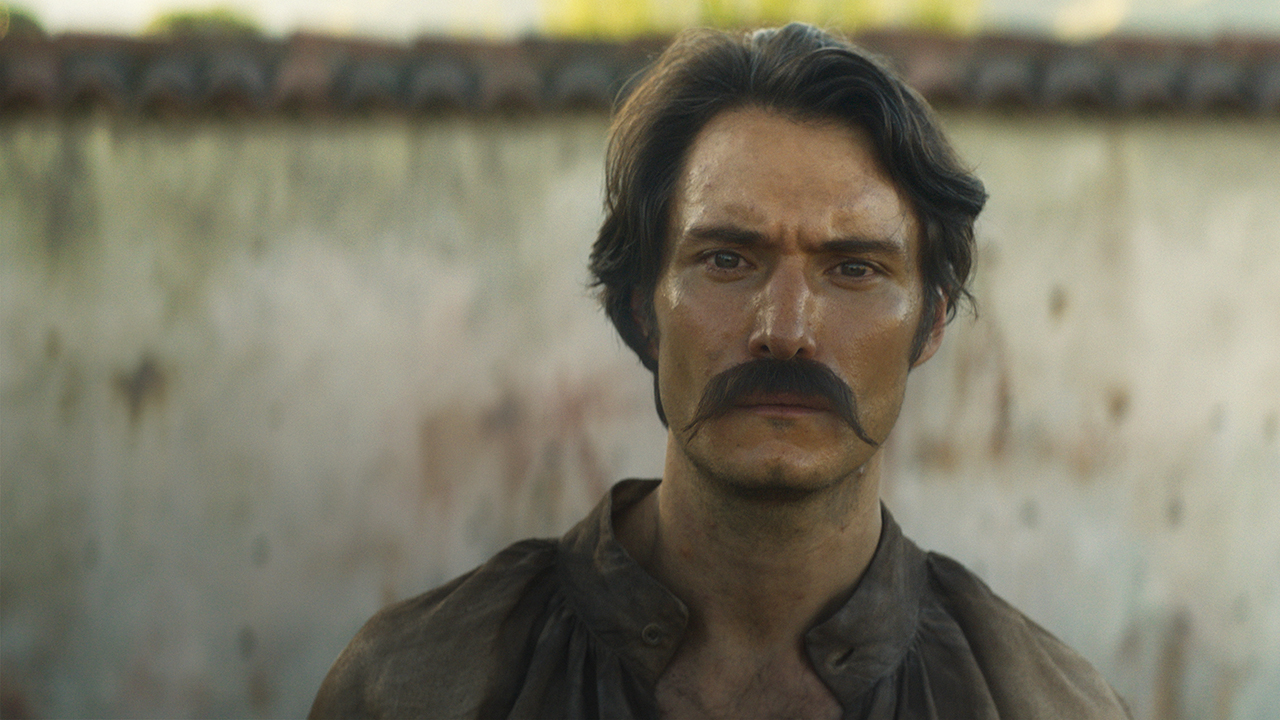![]() The 1990s was a great transition period for African-Americans that influenced and mold today’s culture. In the music world, it gave us gangster rap from Tupac, Biggie and Snoop Dog. In the sports world, Michael Jordan became a basketball legend with a three-peat with the Chicago Bulls. And for civil rights, there were debates raging on with the Million Man March, O.J. Simpson trial and Rodney King.
The 1990s was a great transition period for African-Americans that influenced and mold today’s culture. In the music world, it gave us gangster rap from Tupac, Biggie and Snoop Dog. In the sports world, Michael Jordan became a basketball legend with a three-peat with the Chicago Bulls. And for civil rights, there were debates raging on with the Million Man March, O.J. Simpson trial and Rodney King.
In “American Milkshake,†it is a coming of age story about a white teen Jolie attempting to fit into his mostly African-American high school culture by signing up for the basketball team in the 1990s. The dark comedy film explores the various issues of high school pressure, African-American culture, and teen issues.
Latino-Review had the opportunity to exclusively interview the “American Milkshake†writers and directors David Andalman and Mariko Munro late last month. We discussed several issues with filming a dark comedy, especially tackling the subjects of race, culture and class.
“American Milkshake†is currently in select theaters in Los Angeles and New York. It is also currently available for Video on Demand.
Read or listen to the interview below.
Latino-Review: How did you guys come up with the story for “American Milkshake?â€
David Andalman: I think it came up from growing up in a really diverse neighborhood in the Maryland and D.C. areas and sort of having a group of friends that cross all these lines of race, class and sex. Just watching those affected relationships growing up. Some of that are the inspirations. The real sort of moment I couldn’t let go was this image of this white kid with thispregnant girl. [It is the image] of just this hand on her belly. [Laughter] What was that about? And why do I have this image? Then we worked from there and start to explore it. That was one of the first core images before there was any story.
Latino-Review: Now was it based off both of your life experiences?
Mariko Munro: Not directly story points, but growing up in Honolulu, Hawaii, definitely had race as a topic of debate. We weren’t discussing African-American culture as much. We were discussing Native Hawaiian and Asian cultures. There was definitely a sense of finding your place and who are you in relation to race, class and sex.
David Andalman: There was a sense of bonding over this type of experience in the writing process.
Mariko Munro: And of course historical events and how they affected our world views. A lot of people of our generation have a lot of clear memory of where they were or what was going on about the O.J. Simpson verdict. And there were certain other historical events that shaped our perceptions. It was interesting while we were in pre-production, it was the anniversary of Rodney King. We got to see an excellent production of twilight Los Angeles at Duke Ellington School of the Arts. It was timely with the Trayvon Martin. There were just so many memories flooding back of these crazy injustices that we were exposed to early in our lives that really influence our kind of perspective.
Latino-Review: This movie is considered as a 90s period piece. It kind of make me feels old that now the 90s is considered a period piece. Why did you guys choose that period? Why the 90s?
David Andalman: That’s kind of the chicken and the egg. And to some degree, it’s when we grew up. We’re inspired by other filmmakers we admired like “Diner†and “Dazed and Confused†on making a movie about their youth. It’s the basic coming of age story of the teenage years.
On another level, if you’re going to explore race—so what’s a better time period to set it than during the O.J. trial.
Mariko Munro: Or the Million Man March.
David Andalman: Or when [Michael] Jordan’s father was murdered. It was sort of this idea of fame, race and class. And how these things play into your [lives]. To me, our school went wild O.J. got off. I don’t think it was because everyone was a huge O.J. Simpson fan. I think it was that this was the first time that fame and money trumped race in the U.S. justice system. In high school, you learned at the time that the system is in favor of white people. So that was a huge moment. It makes perfect sense that the story was in that time period.
Latino-Review: Since you both wrote the story and both directed the movie, how did you collaborated and worked together? Was that a difficult process?
David Andalman: No, not at all. It was very organic. Mariko really loved the script and had a lot of great ideas on it. Immediately, I was like “we should do that and it makes perfect sense.†I really liked her ideas and it just evolved from there.
Latino-Review: This is considered as a dark comedy. When do you consider certain racial jokes too offensive? And had you guys pulled back on some of this stuff for “American Milkshake?â€
David Andalman: Oh, yeah. We definitely pulled back a lot of times. Finding the line on what you want to say is not easy. We struggled with that like any artist with their work. At times, we wanted to go further. At times, we said, “That’s not what we want to say.†It’s funny and we don’t like it.
I think we wanted to open up a lot of issues, but we didn’t. We didn’t want to force feed people an idea or a message. It’s like the classical argument between [Quintin] Tarantino and Oliver Stone over Stone’s take on “Natural Born Killers.†Tarantino was to never force feed the audience a message and more like tell a story for people to naturally determine what comes out of it.
We stand on that side of the argument as well. We don’t want to say on what people should believe. We want to present the issues at hand in a way easy for people to go talk about them and find their own opinions on them.
Mariko Munro: When we made the movie, I noticed that on people’s lips that race is being discussed again. For both of us, we thought it was something that was important. It can be taboo, but it’s something that should be acknowledged.
David Andalman: Occasionally, somebody will accidentally cross the line and people are dealing with it. And then it gets erased from history.
Mariko Munro: Yeah, like it gets swept under the rug.
David Andalman: It’s like the Miley Cyrus’ VMA performance was certainly controversial. That’s for people to decide if they like it or not. [People will determine] if it’s exploitive, boring or interesting. People will have their own opinion, but at least it’s kind of out there.
Mariko Munro: As far as a debate, it’s always interesting.
David Andalman: Sometimes people do go too far. That’s too bad. Bad decisions do get made. I think we toil with things, because it’s worth it.
Latino-Review: Why did you guys go with a comedy route instead of a dramatic route for this storyline?
David Andalman: Dramatic route would be so heavy—for [a film] already heavy that it’ll diminish the audience. The last thing we want to do is to preach to the choir. We wanted the audience to be as wide as possible. It’s the idea of talking about huge issues. It’s about the issues that people normally wouldn’t want to approach it.
Doing the dramatic route will hinder on who’s going to see the movie. That’s what we thought using the comedic tool is going to be a great way to let people in.
Mariko Munro: Comedy is awesome for critique. Some of the best comedies critique a universal understanding on why it means so much. I means so much, because it’s true oftentimes.
David Andalman: I think that Richard Pryor, Woody Allen and all these guys are always critiquing society in a major way. I agree that the comedy thing is a great way in doing a critique.
Latino-Review: Let’s talk about the casting a bit. I spoke to Tyler Ross earlier and he said he based part of his character off of you, David. What do you think about that?
David Andalman: [Laughter] That’s funny. I definitely went through that. It was an interesting experience. For me, being white wanting to be black is one aspect of it. Just wanting to be something that you’re not is a more universal version of that story.
The white wanting to be black is this sub-genre that has been done. We saw it in “White Boys,†“Blackness†and “Malibu’s Most Wanted.†To me, the experience that was truly universal wasn’t grabbed in those movies that we wanted to do it.
This is Jolie’s desire is entirely in his head. He doesn’t wield a gun, because he needs to thug out. It’s more of a fantasy. It’s when those albums going triple platinum like The Chronic, Snoop, Tupac, and Biggie—most people weren’t out there gangbanging. They may be in their kitchen and gangbanging in their heads. [Laughter] It’s a story of that kid, which a lot of us were.
Latino-Review: So David, you’re telling me that your high school experience you’ve tried to be black?
David Andalman: [Laughter] I think in my high school that the top hierarchy included these blacks from the projects. Those kids were very cool at the time, because of the nature of it. It’s what’s going on with pop culture. And it’s mostly a black school.
Latino-Review: So there’s that high school pressure. I understand.
David Andalman: There’s a paradigm like that in any high school. There are always the cool kids in the school. I was really fortunate enough that I was in a school that is large enough wasn’t so much pressure.
Latino-Review: Since this is your first feature directorial film, how was your overall experience? Are you guys going to have any more future projects together?
David Andalman: I feel very grateful for the experience, basically. It was a real honor, privilege, challenge and a learning experience. I learned so much about so many angles about everything in life. The whole experience is wonderful.
We’re definitely going to proceed with it. We’re working on original material. We’re definitely going to work together again.
Latino-Review: The new subject won’t be something about race and it’ll be something entirely different, right?
Mariko Munro: I think we were both interested in race and class in general. It’s hard to avoid in addressing it. We’re not avoiding it, but whether it will be the central focus of the next piece is hard to say.
We’re writing a couple of things right now. It’s definitely a subject that continues to fascinate me and I think Dave as well.
David Andalman: You can’t avoid on who you are. You can change genres. You can try your hand at different genres, but handwriting will still look the same. To some degree, I feel like to some degree that I grew up in Mississippi on the black side of the tracks around civil rights lawyers—it’s just something I’m aware of. It will always come out in some degree [in future films], but not necessarily the focus.
Latino-Review: That’s awesome. I appreciate your time and “American Milkshake†was a hilarious movie to me. And hopefully we’ll get to speak again soon on your next project.
David Andalman and Mariko Munro: Thank you so much.
“American Milkshake†is currently in select theaters in Los Angeles and New York. It is also available for Video on Demand.

 FOR FANBOYS, BY FANBOYS
Have you checked out LRM Online’s official podcasts and videos on The Genreverse Podcast Network? Available on YouTube and all your favorite podcast apps, This multimedia empire includes The Daily CoG, Breaking Geek Radio: The Podcast, GeekScholars Movie News, Anime-Versal Review Podcast, and our Star Wars dedicated podcast The Cantina. Check it out by listening on all your favorite podcast apps, or watching on YouTube!
Subscribe on: Apple Podcasts | Spotify | SoundCloud | Stitcher | Google Play
FOR FANBOYS, BY FANBOYS
Have you checked out LRM Online’s official podcasts and videos on The Genreverse Podcast Network? Available on YouTube and all your favorite podcast apps, This multimedia empire includes The Daily CoG, Breaking Geek Radio: The Podcast, GeekScholars Movie News, Anime-Versal Review Podcast, and our Star Wars dedicated podcast The Cantina. Check it out by listening on all your favorite podcast apps, or watching on YouTube!
Subscribe on: Apple Podcasts | Spotify | SoundCloud | Stitcher | Google Play



